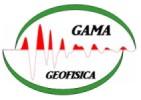Geophysical Applications
Geophysical studies are relevant in any activity that requires the knowledge of subsoil for their development. Hence, fields where geophysics is commonly used are civil and geotechnical engineering, mining, environment, hydrogeology and archaeology. Depending on the final goal, the depth of research and required resolution, the method differs. The geophysical experience determines which method and device has to be employed in each case.
Applications in civil engineering and geotechnics
The geophysical methods used in civil engineering and geotechnics are seismic, electrical in DC and the GPR (Ground Penetrating Radar). Promptly others as potential and electromagnetic can be used.
Read more: Applications in civil engineering and geotechnics
Applications in mining
Under this heading it is necessary to differentiate between surface mining (quarries) and deep mining (metal).
Applications in environment
The geophysical methods most used in this field would be electrical and geo-radar GPR.
Applications in hydrogeology
The main geophysical methods applied in hydrogeology are the electrical and electromagnetic methods. They are based on the electrical resistivity measurement, which shows strong variations in this type of research.
Applications in archaeology
It is possible to differentiate "extensive" studies, which seek to define areas of interest within large surfaces, and the "intensive", whose purpose is to locate and define structures or other archaeological targets with precision.



